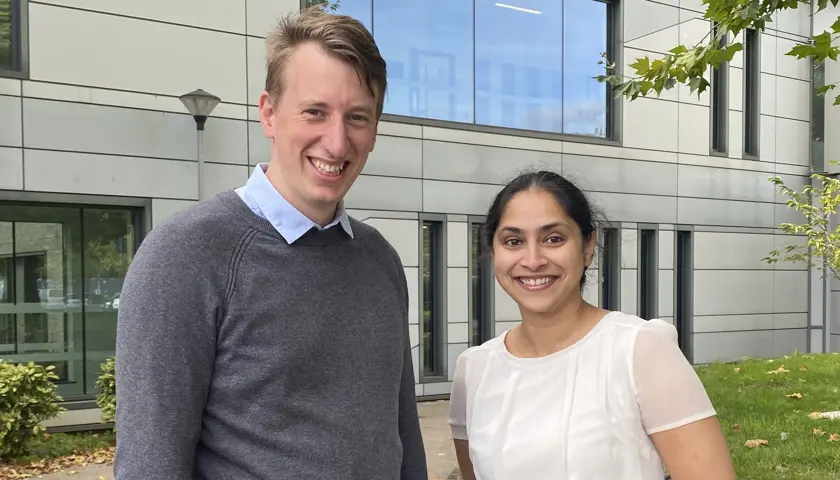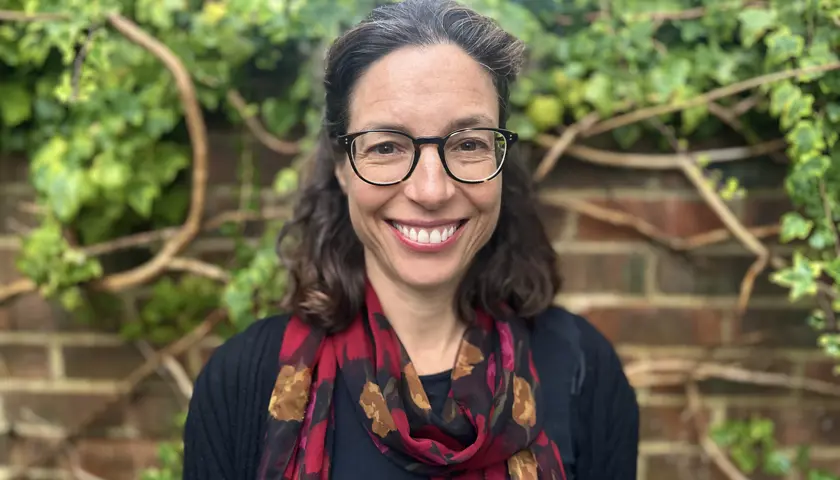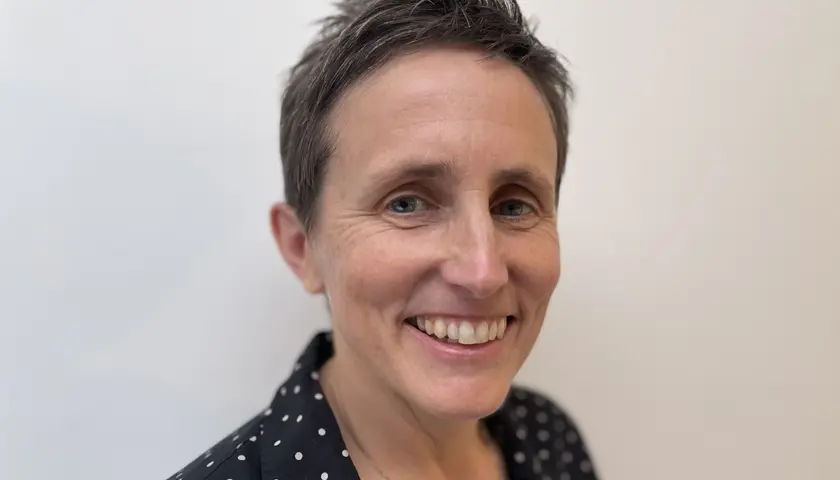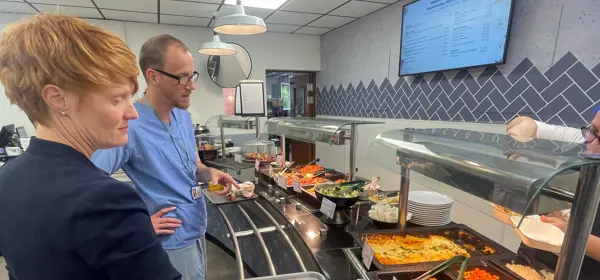Up in smoke?
Up in smoke?
For many doctors, it's painful to see the huge amount of waste and environmentally damaging activity in the health service. Seren Boyd speaks to some of those determined to make the NHS more sustainable
If you care about sustainability, overheated rooms or the sight of metal scissors in general waste can be deeply frustrating, to put it mildly.
The cumulative effect of daily exasperations can be distressing if you agree with Lord Darzi’s report last year that health and climate change are indivisible, ‘mutually reinforcing goals’.
The 38,000 deaths a year in the UK attributed to air pollution and the £6.8bn bill for heat-related mortality in England leave little room for doubt.
The NHS and its doctors are already dealing with climate change’s effects on health. Yet, the NHS remains a major contributor to global warming, responsible for up to 5 per cent of the UK’s carbon footprint.
Most doctors want to see a greener NHS, according to a recent BMA member survey into single-use equipment and wider sustainability goals. Eighty per cent of respondents would support a shift to reusable equipment in theory, for example.
Many also want to help make that happen. As east London GP Emma Radcliffe puts it: ‘I can see where we're heading, and I can't possibly not do something about it.’
Yet, as she and other doctors who are trying to make a difference explain, they can often find themselves ploughing a lone furrow.
Making the case
Vincent Simpson, a specialty trainee 7 registrar in diabetes and endocrinology in Devon, has spent much of his spare time in the past two years building the case for moving patients from disposable insulin pens to reusable ones. His work has had a measurable effect on prescribing behaviour in Devon – but it has been a lonely, often frustrating journey.
He has made the environmental case against disposables – a carbon footprint 60 per cent greater than reusables – as well as the business case, that reusables are no more expensive and generally cheaper.
He has managed to get a prompt promoting reusables added to GP computer systems and some pharmacists have proactively discussed reusable alternatives with patients. He and academic GP Deepthi Lavu have written guidance on sustainable diabetes care and even won awards for their work.
Yet, the ICB (integrated care board) has not given any funding to promoting reusables though it says it is in favour of Dr Simpson's work, and the local formulary has yet to help with their promotion. Disposables manufacturers say they won't act without user pressure, which Dr Vincent is now trying to build in collaboration with diabetes charities.
'We all need to do better,' he says. 'Industry needs to implement recycling schemes and make reusable the cheapest option, and clinicians need to work with them to make all this mainstream.'
Despite these hurdles, he is determined to continue. ‘It is one of the real shames of the NHS that it doesn't capitalise on innovation, in my experience. Often, it’s more like: “We'll just carry on doing what we're doing because we can't take on anything else.” But then nothing ever really improves.’
In Brighton, meanwhile, GP Abigail Fry has been creating sterilisation systems to allow her practice to cut down on single-use items. She had been horrified to learn scissors were being binned for incineration after one use.
She has sourced reusable metal tools, from speculums to coil-fitting equipment, then negotiated a sterilisation arrangement with the local hospital, using pathology couriers for transportation.
This – and the many other green initiatives at Mile Oak Medical Centre – took time, mostly her own time as the then senior GP partner. She also made mistakes – learning the hard way, for example, that not all medical equipment marketed as reusable can actually be sterilised in the hospital.
Dr Fry felt strongly that she needed to share this learning. So in January she dropped a session to help develop the not-for-profit Greener Practice platform, an online toolkit of practical resources and sustainable QI (quality improvement) projects for general practice.
‘Everyone trying to become more sustainable was just doing the same thing, making the same errors,’ she says. ‘We need to learn from each other.’
It is one of the real shames of the NHS that it doesn't capitalise on innovation
Vincent Simpson
Part of the remit of the newly reconvened climate change group at Shrewsbury and Telford Hospital NHS Trust is to try to unearth similar sustainability initiatives in its hospitals and see if they can be replicated more widely.
One audit of particular interest to Jenny Nixon, the group’s clinical representative and a consultant in respiratory and general medicine, looked at disposal inhalers. They account for about 3 per cent of the NHS’s carbon footprint, mainly owing to the propellants contained in MDIs (metered dose inhalers), which have a global warming potential thousands of times greater than carbon dioxide.
Most patients were not aware that their inhalers should be returned to a pharmacy for incineration (which destroys most of the harmful propellant). It later became apparent that many staff were not aware either. Dr Nixon and colleagues have therefore begun a QI project to promote correct inhaler disposal, and have just introduced MDI recycling to their inpatient pharmacies.
The group is also going to work with the endoscopy department, the only one using reusable tourniquets, to develop a SOP (standard operating procedure) so that other departments can follow suit.
Dr Nixon feels it is lack of time and bandwidth, not lack of interest, which prevents colleagues from pursuing greener options.
‘If you say: “We’re changing the policy so that you do x instead of y, because that’s more sustainable,” and it’s no more work for them, people are happy to do it.’
Green plan
The Health and Care Act 2022 introduced new responsibilities for trusts and ICBs to consider climate change in their operations. They all now have to have a green plan for reaching net zero, and are required to provide annual updates on progress to their boards.
Yet, the findings of the BMA sustainability survey suggest many clinicians feel somewhat disconnected from wider efforts.
The survey found that 82 per cent of respondents felt doctors should have a role in helping the NHS achieve net zero, and more than half (56 per cent) would like to be more involved in sustainability initiatives than they are.
Yet, almost half (49 per cent) don't think that the NHS can achieve net zero, while 24.5 per cent say they don't know if the NHS can. (NHS England has since announced it is on track to achieve an 80 per cent reduction in direct emissions based on 1990 levels by 2030.)
Many also pointed out in open-text responses that there is little support available to green-minded clinicians, either from management or official government guidance.
Several survey respondents singled out NICE (National Institute for Health and Care Excellence) for criticism in being slow to embed sustainability in its guidance. Its patient decision aid Asthma inhalers and climate change is the exception.
UKHACC (the UK Health Alliance on Climate Change) went further, accusing NICE of ‘prevarication’ in the face of an urgent need for guidance on greener choices, including ‘environmental judgements’ in evaluating and financing medicines available on the NHS. Guidance on de-prescribing is needed too, says Dr Fry.
Meanwhile, the lack of joined-up thinking is alarming, says Dr Simpson.
Recently, he asked NHS Procurement and NHS England about the potential recyclability of continuous glucose monitors and nobody was able to give a clear answer. These wearable devices, for patients with diabetes, have a plastic body, a battery and a potential infection risk so there is debate about whether they should be recycled as e-waste or incinerated.
Likewise, no one could give an answer to his questions about how many were being prescribed and how many were sitting on shelves, not being used. ‘How are we running this? Why has no one got a handle on this?’ he asks.
For her part, Dr Fry would like to see greater collaboration between primary and secondary care on sustainability initiatives, as Dr Simpson has modelled – and more incentives being offered to accelerate progress.
She gives the example of the Investment and Impact Fund rewarding primary care networks to switch patients from MDIs to low-carbon inhalers where appropriate – as her own practice has done, benefiting the environment and disease control.
Dr Fry is also in favour of tighter regulation, perhaps enforced through bodies such as the Care Quality Commission. ‘A lot of people working in sustainability feel like we’ve had carrots to try and engage people but now we need more sticks.’
The 10-year health plan and the shift to prevention is a green thing
Emma Radcliffe
Funding too remains a significant barrier to progress, according to the BMA survey.
Workplaces have generally made the ‘low-hanging green-fruit’ changes – such as switching to LED lightbulbs – but, for many, infrastructure upgrades such as solar panels and heat pumps remain out of reach.
Many will be hoping for a share of the £100m package, which Great British Energy announced in March they would co-fund with government, to install solar power and battery storage across the NHS.
Sustainability campaigners are quick to point out that many sustainable options are cheaper. Dr Fry calculates she has saved her ICB more than £1,000 a year through optimising patients’ asthma care, which may include switching some to low-carbon inhalers.
Yet, for some, even relatively small initial outlays for reusable equipment, for example, are unaffordable – even though they would soon be recouped through savings on single-use alternatives. Dr Fry estimates the £700 she spent on reusables brought annual savings of about £1,500.
This kind of financial support is important, says Dr Radcliffe in Tower Hamlets. But the NHS also needs to take a much longer view and make broader systemic shifts if it is to become truly sustainable, she says.
‘The crucial point, and I don’t think it’s made enough, is that the 10-year health plan and the shift to prevention is a green thing,’ says Dr Radcliffe, a UKHACC trustee who was net-zero lead for the north-east London ICB until last year.
‘Let’s get patients out of hospitals, a very un-environmentally friendly kind of healthcare, and let’s stop them getting sick in the first place. That means general practice, which is the greenest part of the health service, needs to be resourced properly. We need continuity of care. At the moment we are going in the absolute opposite direction in prioritising access rather than high-quality care provided by someone known to patients.’
Dr Nixon in Shropshire agrees. ‘If I had to pick one thing that I thought could have the biggest environmental and health benefits, that I feel frustrated about on an everyday basis, it is the lack of investment in the prevention of ill health. In our area, people’s inhalers are funded but not nicotine-replacement therapy.’
Staying positive
Many other frustrations – including the lack of allocated time, agency and strong leadership from management – resonate through the BMA survey results. Yet, so too does the message that if sustainability is good for patients, it is also good for staff morale.
A significant proportion of those applying for jobs at Dr Fry’s surgery, one of the first in the UK to gain the Green Impact for Health platinum award, say they are attracted by its strong focus on sustainability.
For her part, Dr Nixon was inspired by a CSH (Centre for Sustainable Healthcare) course, which taught her the power of sustainable healthcare.
‘When I feel like there's so many things I can't fix, when there are 10 ambulances outside [the emergency department], and I've just seen a patient who's been lying on a trolley for 72 hours, this is something I can do something about, and this is going to affect everyone for the rest of time.’
Dr Radcliffe often finds encouragement in progress not measured by NHS metrics. Recently, her practice was involved in a community-led, awareness-raising project, Knitting the air, which translated air-quality data on nitrogen dioxide and particulate matter in Poplar, Tower Hamlets, into an exhibition of blue and pink knitted squares.
‘Health is very much under threat here and my patients will be very much worse affected than other parts of the country,’ says Dr Radcliffe.
‘In the NHS, you feel like you've done a good job if you're just keeping things stable, while this [work on sustainability] is about moving forward on something that's important.’
For those who are struggling to be heard, or still ploughing a lone furrow, especially trainees, there is encouragement too.
You might start with something very small, just change your own prescribing perhaps
Vincent Simpson
Dr Nixon points out that most QI projects can be made sustainable with the help of resources such as CSH’s SusQI toolkit.
The key to successful engagement is using language your target audience understands, says Dr Simpson.
Focusing solely on the cost savings associated with sustainable initiatives can be unhelpful for some. ‘When sustainability gets co-opted as a way to just drive down costs and make care worse, people start becoming very suspicious of it.’
That’s why, with patients, he has emphasised that reusable insulin pens mean fewer sharps bins and less fridge space taken up by single-use pens. ‘It’s thinking: “How can I make this important for you?”’ he says.
Greener health is the art of the possible, says Dr Simpson, and the hope that momentum builds. ‘Look at the power you have, the levers you can pull, and start there. You might start with something very small, just change your own prescribing perhaps.
‘Disposable pens are a token thing but it gets people talking. It just takes a concerted effort from lots and lots of people, over and over again, to make things start to shift the other way. That’s what keeps me going.’
- Greener Practice is running a free webinar about its resources at 1pm on 18 November
- Read more about the results of the BMA's recent sustainability survey






